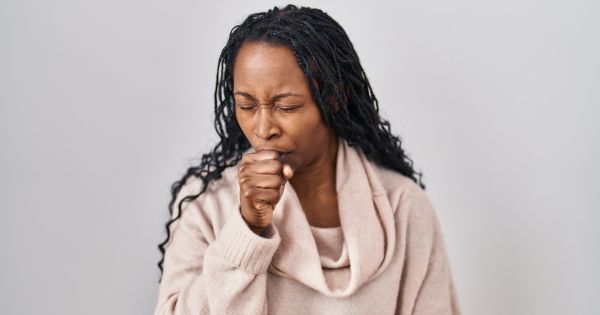For three days a month on average, a significant proportion of the population experience painful menstruation. While it is not often spoken about, period pain can be very uncomfortable for girls and women if the symptoms are not treated.
“Period pain is a very common reason for women requesting self-medication pain relievers, such as analgesics and nonsteroidal anti-inflammatories drugs (NSAIDs), which are a necessity for many girls and women as part of their normal monthly cycle,” says pharmacist Byron Chukwu of Medipost Pharmacy, South Africa’s largest national courier pharmacy.
“Since there are various pain relievers available without a doctor’s prescription, women should discuss their individual needs with their pharmacist. It is important that they understand the options available to them and when it may be necessary to seek advice from their medical practitioner.”
According to Chukwu, pharmacists’ recommendations for relief of period pain are NSAIDs such as ibuprofen or analgesics such as paracetamol. “Whichever of these is used, we always advise that the person eats before taking pain relievers especially NSAIDs, as they can be harsh on the stomach lining, and if taken repeatedly on an empty stomach could increase the likelihood of developing ulceration.
- NSAIDs
“NSAIDs are used to help stop the onset of inflammation through reducing the production of prostaglandins, which cause the cramping and pain symptoms during menstruation.”
The recommended dosage for ibuprofen is 400mg every 4 to 6 hours a day, not exceeding 3200mg in 24 hours.
“As with other medicines, be sure to check with your treating doctor for any possible drug interactions if you are taking other medicine, and to make sure there are no other contraindications before taking ibuprofen. For instance, women who have a stomach ulcer should not take ibuprofen because this could aggravate it,” Chukwu advises.
- Analgesics
“Analgesics are considered safer than NSAIDs because they have very few side-effects and little interaction with other types of medicine, however, all medicines should be used with care and only as advised,” he says.
“The standard dose for adults is 500mg to 1 000mg, four times per day, not exceeding 4000mg in 24 hours.
To avoid paracetamol overdose, be sure to double-check that no other medicines you are taking contain paracetamol.”
Paracetamol is not suitable for people with liver or hepatic impairment, as it is metabolised or processed through the liver.
People registered with Medipost Pharmacy’s chronic medication delivery service or self-medication online shop have access to telephonic clinical advice from pharmacists and pharmacist’s assistants in their preferred official South African language.
This service is available from Monday to Friday, 08h00 to 17h00, and Saturdays between 08h00 and 12h00 for advice regarding dosage, possible side effects or interactions and other concerns relating to medication dispensed by Medipost Pharmacy.
“Usually, period pain may be expected to last approximately one to three days, however if a woman finds that she is experiencing discomfort requiring pain relief for longer, she should consult a medical practitioner,” Chukwu says.
In appropriate cases, the treating doctor or specialist may prescribe combined oral contraceptive pills, which reduce the thickness of the endometrial lining that produces the prostaglandins causing period pain.
“Applying warmth to the area may help to soothe menstrual cramps. Drink warm beverages and be sure to eat breakfast. Where needed, an iron and folic acid supplement, may be taken for a few days to help ward off anaemia,” he says.
“When used appropriately, self-medication products can be most effective for managing the symptoms of period pain,” he concludes.
 Kaboutjie SA Mommy Blogs by Lynne Huysamen
Kaboutjie SA Mommy Blogs by Lynne Huysamen





I suffered terrible period pain before I gave birth. Now everyone at work knew that if I didnt come to work two days in a row it would be period pain much to my embarrassment. Hot water bottle, Nurofen and parsley tea really helped me. Since I gave birth I no longer feel any pain during my menses
Nurofen period seems to work wonders!
Hate pms! Helpful tips.